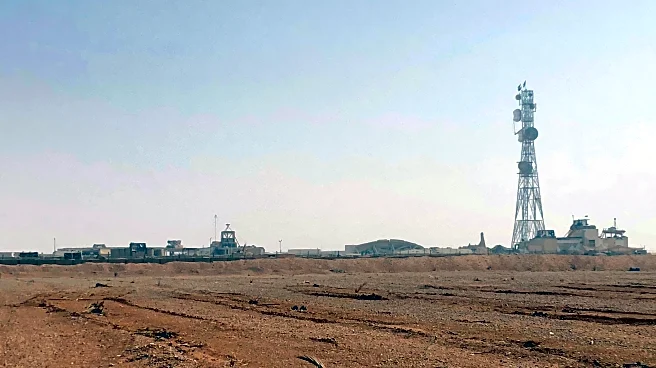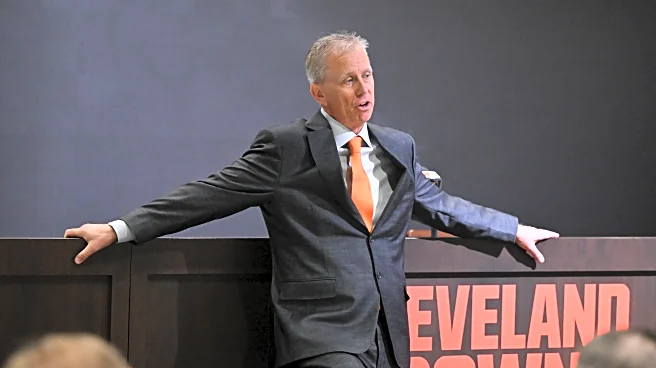What's Happening?
The Office of Management and Budget (OMB) has issued a guidance memorandum aimed at streamlining the review process for deregulatory actions. This memorandum, signed by Acting OIRA Administrator Jeffrey
Bossert Clark, sets new deadlines for the review of deregulatory actions, reducing the timeline to 28 days for actions requiring factual records and 14 days for repeals of facially unlawful rules. The guidance encourages agencies to bypass notice-and-comment requirements when repealing regulations deemed unlawful, relying on the Administrative Procedure Act's 'good cause' exception. The memorandum also exempts deregulatory actions from certain consultation and analytical requirements under other Executive Orders, such as those concerning federalism and tribal consultation.
Why It's Important?
The guidance represents a significant shift in regulatory oversight, potentially accelerating the pace of deregulation across various sectors. By reducing the time for review and limiting public comment, stakeholders may face challenges in influencing deregulatory actions. This could lead to increased litigation as agencies take actions without the usual procedural safeguards. The memorandum's emphasis on deregulation as a source of public benefits, such as enhanced liberty and market flexibility, may reshape how regulatory actions are perceived and implemented. Industries that are heavily regulated may experience changes in compliance requirements, impacting business operations and strategic planning.
What's Next?
Stakeholders, including businesses and civil society groups, will need to closely monitor agency actions and regulatory changes. The reduced timelines for review may require more proactive engagement with agencies to influence deregulatory actions. Legal challenges are likely to arise as stakeholders contest actions taken without notice and comment. Agencies may face increased scrutiny and pressure to justify their deregulatory decisions, potentially leading to a reevaluation of the balance between regulatory oversight and deregulatory initiatives.
Beyond the Headlines
The memorandum's approach to deregulation raises ethical and legal questions about the role of public participation in regulatory processes. The reliance on the 'good cause' exception may set a precedent for future deregulatory actions, potentially undermining the principles of transparency and accountability in governance. The shift towards viewing deregulation as a positive good may influence public policy debates and reshape the narrative around regulatory reform.











